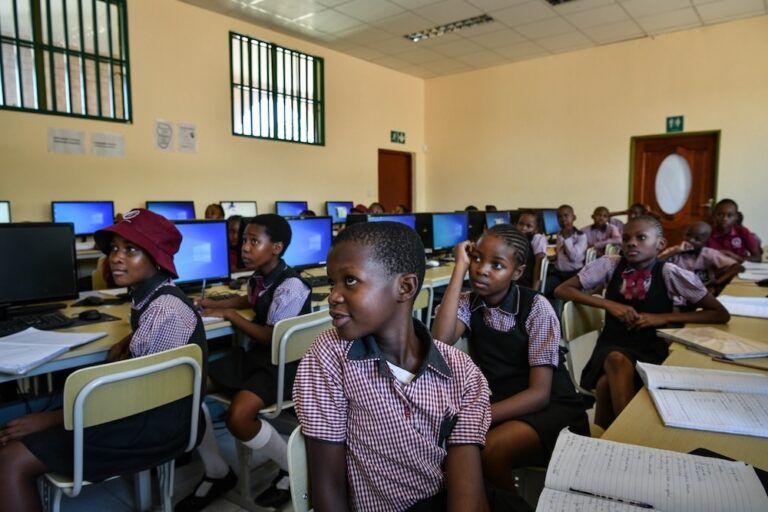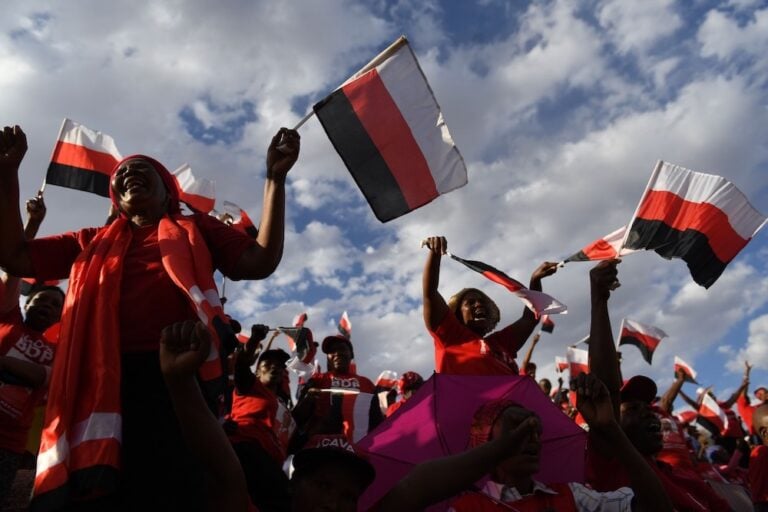(MISA/IFEX) – Media workers in Botswana are still concerned about a broadcasting bill proposed by the government. A meeting of the Media Task Force on the bill has been called for 27 November 1997 to review the situation. The proposed bill comes after an earlier one on mass media communications was rejected by the media […]
(MISA/IFEX) – Media workers in Botswana are still concerned about
a broadcasting bill proposed by the government. A meeting of the
Media Task Force on the bill has been called for 27 November 1997
to review the situation. The proposed bill comes after an earlier
one on mass media communications was rejected by the media in
June (see Background, below).
**Updates IFEX alerts dated 9 July, 30, 23 and 18 June 1997**
In a letter to MISA-Botswana dated 14 November, the government
says it will establish a ten-person National Broadcasting Board,
members of which will be appointed by either the president or a
minister. The duty of the board will be to advise the state on
matters affecting the broadcasting industry in Botswana.
The draft bill says the president or minister will appoint four
persons from a panel of names submitted from government
ministries of Commerce and Industry, Labour and Home Affairs, the
Office of the President and from Botswana Telecommunications. The
remaining board members will be appointed from the media,
citizens, the private sector, the religious community and
non-governmental organisations.
MISA-Botswana has rejected the draft bill. The chapter’s
coordinator, Chibuya Ntsimanyana, says they want Parliament to
appoint a transparent independent body. MISA-Botswana’s
submissions to the state in July were that the board would better
serve the community if it wer constituted through a transparent
process that is inclusive of diverse non-governmental
stakeholders. It also submitted that any independent broadcasting
board must have direct control of the available frequency
spectrum for which it is empowered to grant licences.
Nevertheless, MISA commends the Botswana government for its
untiring attempts to introduce legislation under which the media
– particularly broadcasting – can be governed and administered.
However, MISA’s position on regulatory authorities is that
neither the government nor other interested parties should have
positions on the regulatory board. As such, appointments to the
board by the president or minister of the Botswana broadcasting
board fall short of guaranteeing a non-partisan administration of
broadcasting in Botswana. The body that allocates licences must
be independent of the government, and members of the regulatory
authorities should be appointed through a public process and be
approved by a parliamentary committee.
Background Information
On 28 May, the Botswana government released a Mass Media
Communications Draft Bill. The bill would have established a
separate broadcasting board, a state newspaper registration
system, accreditation procedures as well as a legislated press
council. Each of these bodies would have been appointed and
managed by the government of Botswana through the Ministry of
Information which falls under the Office of the President.
The draft bill sparked national and international protests. Media
in Botswana rejected it, noting that it was “infringing and
encroaching” on the right to freedom of expression and media
freedom.
A 25 June media workers’ audience with the Minister of
Presidential Affairs and Public Administration Ponatshego
Kedikilwe resulted in assurances from the government that further
consultations would take place with the media and raised a
possibility that the legislation would be deferred, which the
government agreed to do following a 3 July meeting between
government representatives and a MISA-Botswana-lead delegation
(see IFEX alerts).


